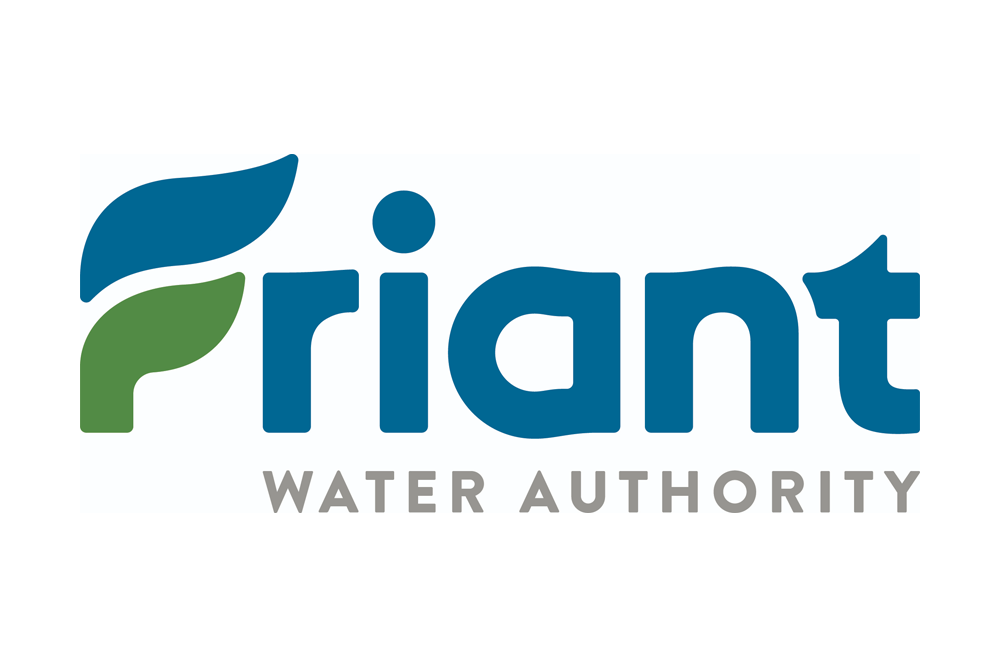 The Tulare Irrigation District held its board of directors meeting on Tuesday, August 11, 2020 remotely by Cisco’s Webex.* Unlike some districts TID opened its meeting a little early and you get a chance to see some folk’s office or kitchen. It was announced Director Rick Borges wouldn’t be able to join today’s meeting. General Manager Aaron Fukuda announced Jim Cannia, a gentleman who did much of the Sky Temp work for TID was killed in a horrific auto accident earlier this week. May the Lord bless his family as they go through this time.
The Tulare Irrigation District held its board of directors meeting on Tuesday, August 11, 2020 remotely by Cisco’s Webex.* Unlike some districts TID opened its meeting a little early and you get a chance to see some folk’s office or kitchen. It was announced Director Rick Borges wouldn’t be able to join today’s meeting. General Manager Aaron Fukuda announced Jim Cannia, a gentleman who did much of the Sky Temp work for TID was killed in a horrific auto accident earlier this week. May the Lord bless his family as they go through this time.
Chairman David Bixler called the meeting to order a hair past 9:00am. I made a self serving public comment about the San Joaquin Valley Water Blueprint webinar tomorrow, Wednesday August 12th at noon and Water Master Marco Crenshaw gave his report.
Staff Reports
Crenshaw said most of the system is about to take a nap until next year. It appears TID delivered 22,000 a/f to farm turnouts and 23,000 a/f to recharge.
Superintendent Wayne Fox gave his report saying Big Marxist Virus, heat protection and other safety issues were scrupulously followed. Fox’s report was interrupted by some tech glitch. His listed various maintenance and one of the big ones was weed control. Aquatic weeds are a problem being dealt with around the state at this time of year. As the water heats up and some of the turbidity fallout clears the water so more sunshine gets through it seems to be a good environment for water weeds.
Director Mike Thomas asked where the water near Mooney Grove Park is coming from. Fox said People’s Ditch Company is running a spill into TID’s canal there. It’s an operational issue for PDC that at least provides recharge. Fukuda reminded everyone the meeting is being recorded to help with the minutes. Good to know.
Kathi Artis gave the treasurer’s report. She said the district made about $2 million including water sales. Those of you new to WaterWrights.net I want to share with you our editorial policy – it’s only a quote when it is in quotation marks and attributed. For instance, Artis didn’t say “about” $2 million but it was an amount close to $2 million. Most special districts, TID is no exception, keep pristine books and are regularly audited. These are public records. I don’t go into much detail on the financial reporting unless something is out of the ordinary. Director Dave Martin asked about some of the herbicide costs and Fox said he often buys from Gar Bennett. This is an example of how closely the financials are watched internally. Farmers don’t use chemicals recreationally. Nor water. The districts are very careful about money, more so than any other government agency you care to name; certainly the special district’s track record on fiscal competency will far exceed anything the state or federal government can show – and most private enterprise.
Re Fi
TID is looking to refinance a loan. It has retained Fieldman, Rolapp & Associates with Lora Carpenter and Robert Porr. Those names sounded familiar and not just from last month’s TID meeting. Carpenter and Porr were just at the San Luis Delta Mendota Water Authority last week. Carpenter explained their role is to shop bank loans for TID. She sounded like she likes Hill Top Securities as that firm has been dealing with other entities in the San Joaquin Valley and will match any lower fee bids. It appears for larger loans a district hires someone to find someone with very detailed experience to shop a refinance. Fukuda likes Hill Top as well for its experience with special districts and irrigation districts specifically. That’ll make a difference when you consider the income streams for these two different types of entities. Municipalities have a tax base that doesn’t depend on the weather like a water entity. Thomas asked about the interest rates from similar loans. Some of the nearby districts are saving a percentage point by refinancing through Hill Top. B of A and Wells Fargo are apparently sitting fat and sassy with higher loan rates and it pays off to lower the rate with a leaner/meaner lender. The board approved using Hill Top.
Artis next spoke about changing the district’s accounting software to Quick Books from I think she said Cost 90, maybe? Anyway, the older software met the district’s needs much better and there was no action needed.
Engineering & Funding
TID engineer Jeremy Barroll gave his report saying the Watte Measuring Structure has poured the south wall. Fukuda said the contractor was exceptional. The first pour was wrong and the contractor tore out the mistake and started from scratch. It’s going to cost them greatly but the contractor stood up and took it. No lawsuit necessary. Good report.
Fukuda reported two staff members have been exposed to Big Marxist Virus and they will stay home until the proper time. He said he’s been consulting a human resources attorney, I didn’t catch her name, in developing a plan to deal with the new health concerns. He will soon be able to present this plan.
The Okieville Basin was named before many panties caught fire over cultural matters. FEMA has blocked grant funding of $2.9 million. FEMA has not been helpful in even discussing the matter. This isn’t an isolated incident – several other districts are suffering a similar problem with FEMA. Fukuda said this has been extremely frustrating. The US Bureau of Reclamation and the California OES has also been stymied by FEMA. TID can appeal and there are other grants available. It is possible this is spill over from California Attorney General Xavier Becerra’s excessive lawsuit rampage against the feds. Cal OES has hired a consultant to help sort this out.
SGMA
Fukuda next spoke about the SGMA situation. He said now that water deliveries are winding down the Kaweah Sub Basin GSA managers are working on getting a more precise water budget and allocation framework. The GEI data transfer lost something in the translation so that big block of information is being reconstructed. The CV Salts Program wanted to move the drinking water issue over to the GSAs. There was push back on this and a non-profit organization was formed to keep things separate. However, the question remains who should sit on the board, Growers? GSAs staff? He doesn’t want to see redundant fees placed on growers and landowners.
He said a Prop 68 grant for $500,000 for SkyTEM can be reimbursed to the district. TID has 800 wells or more and has been working with the California Water Institute at Fresno State. However, due to severe budget cuts Tommy Esqueda is no longer with CWI and he was the contact for a metering program. That will take a little reworking.
Under the water marketing strategy report Martin expressed some concerns about water marketing. He said he’s seen a report that by 2026 the United States may not be able to feed itself. You’ve heard about being dependent on foreign oil. To be dependent on foreign food is insane.
Friant
Under Friant matters Fukuda spoke at length about repairs on the Friant Kern Canal. There are three levels of projects, each with great capacity and corresponding cost. The most expensive is estimated to cost almost half a billion dollars. This, the biggest project is the one being focused on. There will be some federal funding, some funding from GSAs and loans and grants from the state are not likely to be available in this Big Marxist Virus environment. There is an option to have private funding where a business can front money to a Friant contractor but has become controversial. Both Madera ID and Orange Cove ID has loudly expressed concerns about doing business with one of the participants.
Fukuda next spoke about funding for other projects. The district has been talking about the Capitol Core Group for some water marketing advice but realized CCG can help link the district to some funding. TID has had some success with grants, Fukuda said about $10 million in the last decade. These grants are getting more competitive and the McKay Point Project on the Kaweah River would be a good candidate for federal infrastructure funding. Michael McKinney and Jeff Simone of CCG said they’ve secured millions of dollars for water entities. There are multi-billion dollar bills floating through congress that will come out either this session or the next. McKinney believes CCG can help put TID’s project at the front of the line. He’s proposing a 120-day due diligence period. He said this isn’t a research project. His firm will go to the key decision makers and gather the information necessary to place TID’s projects in order to receive the funding. Fukuda said Friant Water Association CEO Jason Phillips has been the best fantastically successful at lobbying. He feels TID needs a similar effort. McKinney said he’s well aware of Phillips’ success and CCG will do a similar process. He said the strategy will include several pots of money and not a one try and over. James Silva, Manager People’s Ditch Company has told Fukuda his outfit is ready to cost share on McKay Point. The board thought hiring CCG was a good idea and authorized the agreement.
Making Plans
TID has a strategic plan and Fukuda said it includes the financial model where one can plug and play to determine the viability of various strategies. Martin said he feels like the plan is sound and worthy of consideration. He said he’s been taking Prevagen and is thinking clear. He said the district is in the need of a plan and this one looks good. Thomas said TID needs other funding sources besides simply raising rates on its growers. He was in favor. Fukuda said spending $14,000 to get $14 million in infrastructure funding that increases the district’s storage by more than 8,000 a/f annually is a good deal. Director Scott Rogers said he’s looked through the entire plan and likes what he sees. It has the ingredients he wants in a plan. He moved to accept and Martin seconded him. The board voted by roll call and the approval was unanimous.
Next attorney Rachele Berglund spoke about the Big Marxist Virus plan. Fukuda said if you or someone near you tests positive to BMV you’ll be quarantined for a couple of weeks. Under this plan if they don’t get sick or is no longer in contact with anyone the employee can self-evaluate, sign a self-certification letter and come back to work. If an employee is experiencing hay fever they can sign the letter and come back to work. There is a two-week BMV leave that expires at the end of the year. This is also retroactive. There have been two employees that have already spent two weeks out on BMV. Berglund said Fukuda gave a good explanation. She added the year end expiration coincides with federal law that may likely be amended. The board agreed.
The next item was getting TID in line with a state law regarding a debt management policy. Fukuda said Porr and Carpenter earned their keep by developing a policy and there were a few tweaks but the law doesn’t allow for much customization. He listed several criteria that has to be included such as structural elements of debt and post-issuance compliance. The board approved.
Moving Dirt & Power
The McKay Point licensing agreement was the next item. The Kaweah Delta Water Conservation District is working on the Hannah Ranch recharge project. This project will remove about 2.5 million cubic yards of material. Kaweah Delta thought High Speed Rail was going to use this dirt. Well, HSR lived up to its usual standards and now Kaweah Delta wants to pile the material near McKay Point. Silva and Fukuda weren’t comfortable with this and so the idea to spread it out, grade the material but using it for farming isn’t good either as that requires more irrigation. So, the agreement now calls for reverting the area to grazing of natural plants. McKay Point is located at where the Kaweah River and the Saint Johns River diverge in Tulare County. Kaweah Delta estimates it will take three years to complete this part of the project. The board approved.
Next TID wants to terminate the 1982 agreement with the Kaweah St. Johns River Association and the KDWCD for the power plant at Terminus Dam on Lake Kaweah. The plant is being sold and the new owners will be working directly with the KSJRA and this clears TID from further involvement. This was approved.
Resolution 20-09 was next and this also involved the sale of the plant. The buyer wanted a resolution affirming the sales with a limited guarantee that acts as a warranty to the buyer. The board approved the resolution. The buyer wanted this as opposed to a codified vote from a meeting.
Board reports were next and Martin said there wasn’t much to report on the KSJRA meeting. The Kaweah Basin Water Quality Association dealt with the CV Salts attempt to change the water quality responsibility.
Bixler reported everything where he goes was normal.
Thomas said there was no Watchumna meeting until tomorrow.
Rogers reported there was nothing to report.
The meeting then went into closed session and that was that.
DISCLAIMER OF RESPONSIBILITY; Waterwrights strives to provide his clients with the most complete, up-to-date, and accurate information available. Nevertheless, Waterwrights does not serve as a guarantor of the accuracy or completeness of the information provided, and specifically disclaims any and all responsibility for information that is not accurate, up-to-date, or complete. Waterwrights’ clients therefore rely on the accuracy, completeness and timeliness of information from Waterwrights entirely at their own risk. The opinions expressed in this report are those of the author and do not represent any advertisers or third parties. *As a participant Cisco’s not my favorite but it may be better for those hosting. The service itself between WebEx, Zoom and GoToMeetings seems pretty similar to me but Cisco’s WebEx is more difficult to access. Also, I don’t like the company’s diversity and inclusion policies.
ALL RIGHTS RESERVED. Copyright 2020 by WaterWrights.net/DAW
TULARE IRRIGATION DISTRICT
6826 Ave 240, Tulare, CA 93274 Office: 559/686-3425
Board: David G. Bixler- President, Richard S. Borges, Jr.-Vice President, Scott Rogers, Dave Martin & Michael Thomas
Staff: Aaron Fukuda-General Manager, Jeremy Barroll-Engineer, Kathi Artis–District Controller, Wayne Fox–Superintendent, Marco Crenshaw–District Watermaster & Alex Peltzer-Attorney.
About: The Tulare Irrigation District was organized September 21, 1889. The original proposal for the formation of an irrigation district covering 219,000 acres, extending from the Sierra Nevada foothills to Tulare Lake, was eventually reduced to 32,500 acres. The District continued in this status until January of 1948 when the so-called Kaweah Lands” (approximately 11,000 acres) were annexed. In October of 1948, approximately 31,000 acres, compromising the area served by the Packwood Canal Company were annexed to the District. A U.S. Bureau of Reclamation contract was signed in 1950 providing an annual supply of 30,000 acre-feet of Class 1 water, and up to 141,000 acre-feet of Class 2 water from the Friant-Kern Canal. The District and the Kaweah Delta Water Conservation District have coordinated efforts to enhance the recharge of groundwater within the Kaweah Basin. During high flow times KDWCD may use the recharge basins with the District for recharge purposes. Further, KDWCD has historically provided for a financial incentive program through which the District sustains the level of groundwater recharge from supply sources into the District. This historical program was recently reinstated by both districts in lieu of the District’s plans to concrete-line this canal to conserve the surface water. TID is a member of the Mid Kaweah GSA.


































